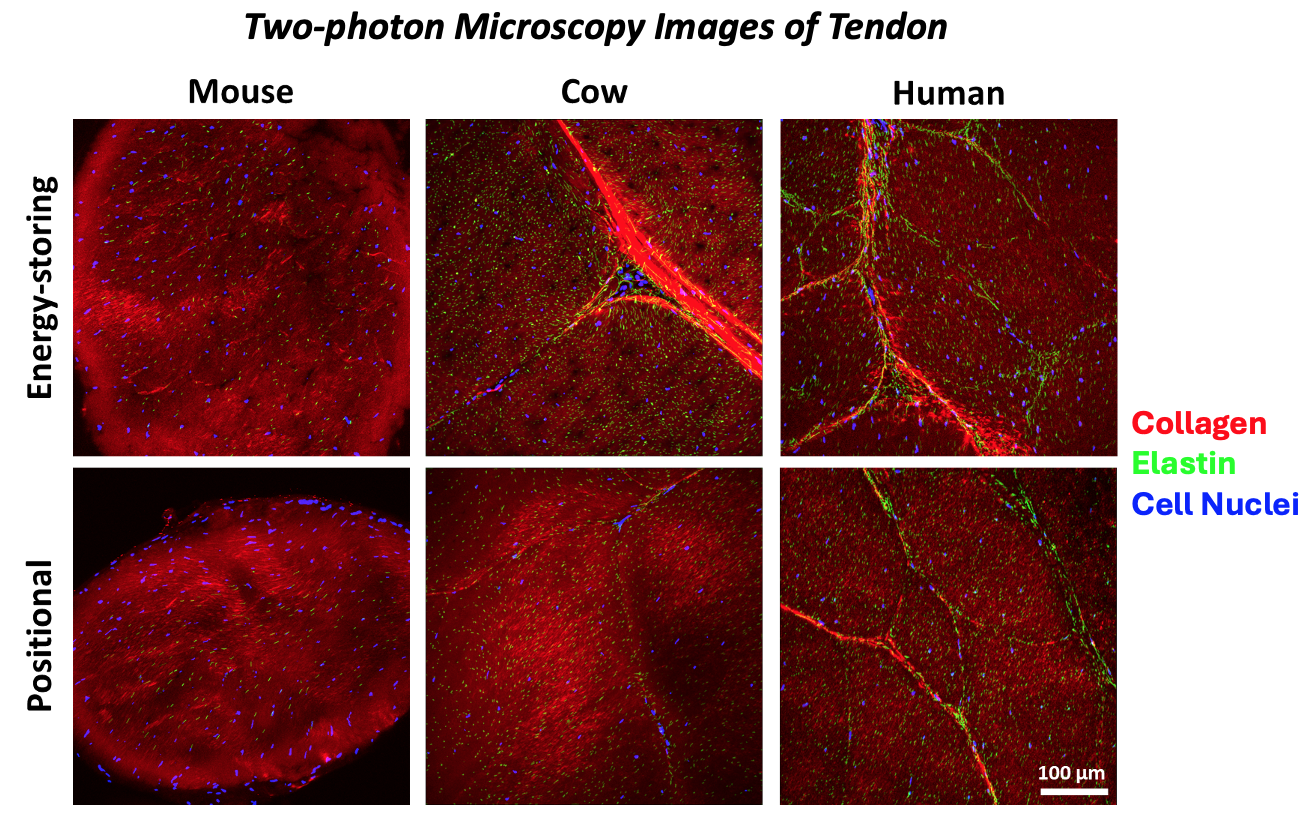Spencer Lake, Washington University in St. Louis
The Role of Elastic Fibers in Tendon Mechanics
Abstract:
Tendons serve as a linking component of the musculoskeletal system by transferring forces between muscle and bone. Collagen is the principal constituent of tendon and makes up a large portion of its aligned hierarchical organization. Other structural proteins (e.g., elastin) are poorly understood in relation to tendon function but may contribute to unique mechanical properties like high extensibility and fatigue resistance. In tendon, elastin has been shown to exert a significant impact on tendon mechanics despite its low content compared to other tissue constituents. This talk will present our work describing the mechanical role of elastic fibers in tendon through studies using genetically modified mouse models and enzymatic elastin digestion of mouse, bovine and human tendons. Novel imaging and fiber analysis techniques were utilized to quantify the structural organization of elastic fiber networks in different regions of functionally distinct tendons from several species. Elastic fibers are proposed to primarily affect the tensile response of tendon by regulating collagen reorganization within tendon fascicles during loading but may have other subtle roles in cell signaling and mechanotransduction.
Speaker: Spencer Lake, Washington University in St. Louis
Spencer Lake is an Associate Professor in the Departments of Mechanical Engineering & Materials Science and Orthopaedic Surgery at Washington University in St. Louis. He directs the Musculoskeletal Soft Tissue Lab where research projects seek to enhance fundamental understanding of soft tissue biomechanics to improve strategies to prevent and treat degeneration and injury. His work has designed experimental methods to elucidate multiscale tendon mechanics, developed new model systems to study challenging clinical conditions like elbow injury and joint contracture, and advanced imaging techniques to quantify real-time microstructural organization of connective tissues under load. Dr. Lake’s research has resulted in 90+ journal articles and 190+ conference abstracts, and has been funded by the NIH, NSF, and several research foundations. He is the recipient of a number of research and teaching awards and is a fellow of the ASME.
Host: Catherine Kuo
Seminars start at 4:00 pm, and refreshments will be served at 3:45 pm. All seminars are held in the Conference Room (1116) of the Institute for Physical Science and Technology (IPST) Building (Bldg #085) unless otherwise noted.



